Energy Forum 43: Breaking Israel’s energy isolation
The Israeli energy market has unique characteristics. One of its main problems is that the state is isolated from its neighbors in terms of energy supply and export, making it a kind of “energy island.” This applies to various fuels, such as natural gas, and to electricity: the state provides itself with electricity and is […]
Space Technology, Patterns of Warfare and Force Build-up: Between a Power and a Small State
This article concentrates on the question of how the expansion into space, which was part of the information and space technology revolution, affected patterns of warfare and concomitantly affected force build-up in the US and Israeli military forces . It will describe and analyze the influence of space technologies on the changes that have occurred […]
Brain-Storming about Home-Front under War Situation.
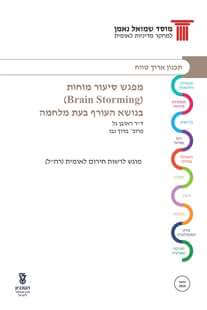
On Dec. 7, 2018, a Brain-Storming meeting took place at the Samuel Neaman Institute. The meeting was solicited by the Israeli National Emergency Management Authority (NEMA), at the Defense Ministry. The B-S comprised 18 experts from different disciplines.The B-S process produce 4 clusters of relevant issues: 1. Descision-Making and Dilemmas 2. Media, Social-Media Information and Spokesmanship […]
Terrorism Risk and their impact on tourism
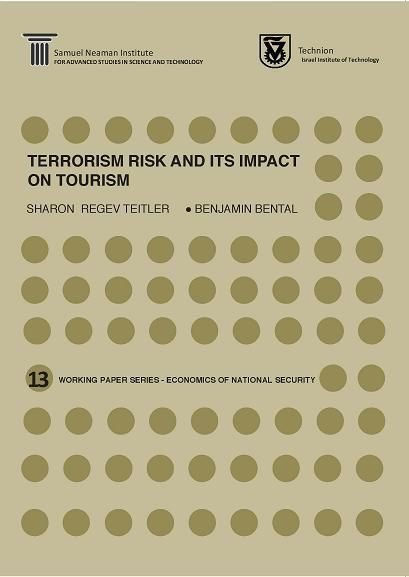
Tourism is very sensitive to the occurrence of terror despite the extremely low probability of getting hurt in acts of terror. The study suggests that the high sensitivity of tourists to the occurrence of terror is due to substitution among tourist destinations rather than risk aversion. This conclusion is based on an empirical structural model […]
Adaptation Processes and Consumer Behavior Under Uncertainty Security Conditions
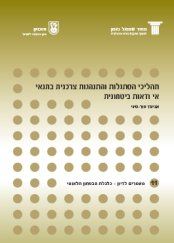
Towards the end of the fall of 2000, terrorism began to strike the State of Israel again. It upset everyday life and prevented normal routine. However, according to Kirschenbaum (2005), if a society does not adopt a “survival strategy” it is likely to fall apart without its having the ability to rehabilitate itself in the […]
The Struggle for Palestinian Hearts and Minds: Violence and Public Opinion in the Second Intifada
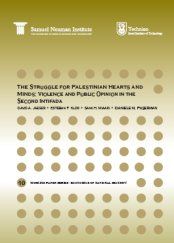
This paper examines how violence in the Second Intifada influences Palestinian public opinion. Using micro data from a series of opinion polls linked to data on fatalities, we find that Israeli violence against Palestinians leads them to support more radical factions and more radical attitudes towards the conflict. This effect is temporary, however, and vanishes […]
An Evaluation of Strategic Arms Limitation Agreements Model, with an Application to the Israeli-Syrian Conflict
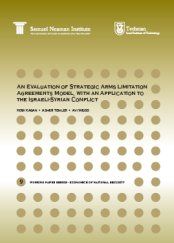
This study evaluates the order of magnitude of the monetary cost of achieving an international strategic terror weapons (TWP) limitation agreement in an asymmetric arms race, with an application to the Israeli-Syrian conflict. It extends the Kagan, Tishler and Weiss (2005) framework and develops a model of resource allocation between consumption and security goods in […]
Religious Terrorism: A Cross-Country Analysis
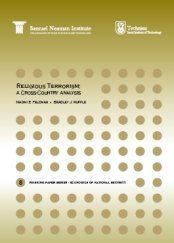
A growing theoretical literature explains why religious organizations are better suited to perpetrate suicide bombings in particular and terror attacks more generally than their non-religious rivals. We offer the first comprehensive test of the roles of religion and religious ideology in terrorism using a unique country level database on domestic terrorism. Our results show that […]
Terror and the Costs of Crime
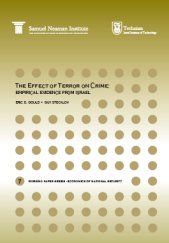
This paper argues that terrorism, beyond its immediate impact on innocent victims, also raises the costs of crime, and therefore, imposes a negative externality on potential criminals. Terrorism raises the costs of crime through two channels: (i) by increasing the presence and activity of the police force, and (ii) causing more people to stay at […]
Establishment of R&D Anti-Terror Warfare Mechanism for Homeland Security Protection from Terrorism
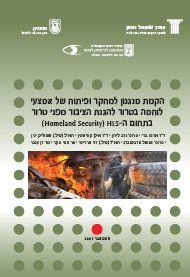
The number of dangers on the Israel Home Front is extremely high. We can never avert every possible terror threat, yet, while different types of threats disappear, new threats are popping up and terrorists keep changing their methods and systems relentlessly in order to achieve their goals. Therefore, the State of Israel must have a […]
